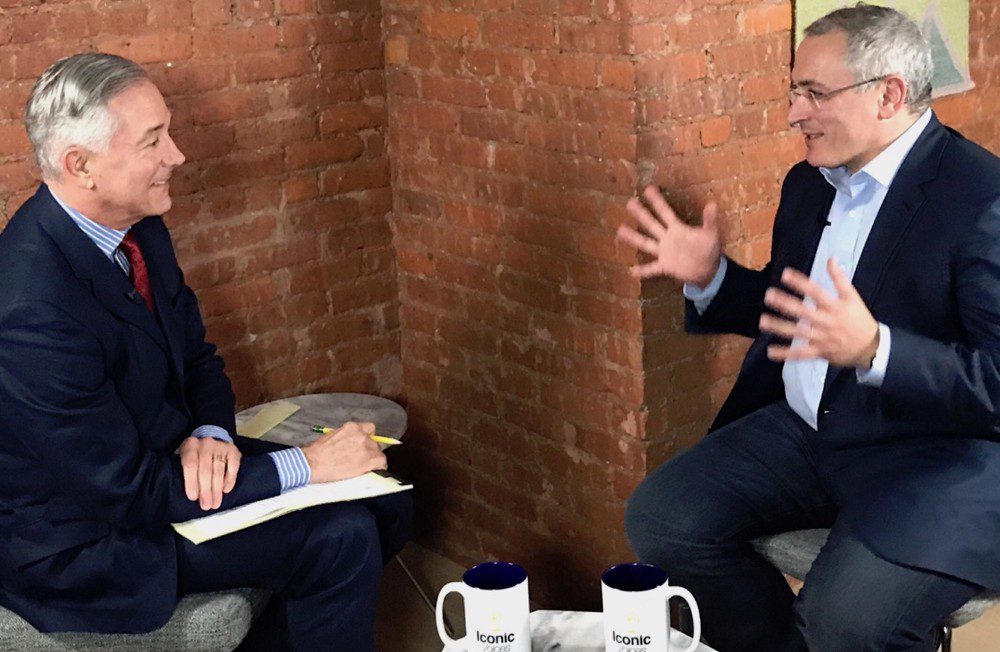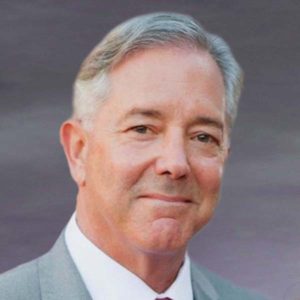
Mikhail Khodorkovsky is the former CEO of Russian oil company Yukos, a company that was seriously in debt when he took over 1997. He transformed Yukos into the country’s second-largest oil producer, and by 2003 he was the richest man in the country. Later that year he was jailed by the Russian government and imprisoned for 10 years on tax evasion and fraud charges (which he vehemently denied) after publicly criticizing endemic corruption in the country.
Released from prison in 2013, Khodorkovsky is now pushing for a different vision for Russia: to create a strong and just state that is committed to observing human rights, free and fair elections, and the rule of law.
Jeff Cunningham interviewed Khodorkovsky and asked him about embracing capitalism after being raised in communist Russia, building Yukos into one of Russia’s largest oil companies and the difference in managing a workforce in Russia and in the U.S.
Jeff Cunningham: As a young boy, you were a leader in the Communist Youth League. How did you become a great capitalist?
Mikhail Khodorkovsky: You need to understand the times we were in. When I was growing up in the Soviet Union, the Communist Youth League was an ordinary part of everyday life. For example, in the U.S. right now, some children are homeschooled.
This might seem a bit extravagant to some but it’s done. In the same way, in the Soviet days, if you didn’t send your kids to the Communist Youth League, that was viewed as an extravagant gesture. Unlike North Korea or East Germany, everybody was less serious about ideology, so metaphorically, we had to dress alike, but what we were actually thinking didn’t concern people all that much. That said, I was absolutely convinced at the time the proper path was socialist communism. In today’s America, a significant part of the population seems to think the same, and in Europe, the majority feels this way.
“After I’d made the acquaintance of most of the workers, I went through the whole oil production chain and actually worked for a week or a week and a half at every job.” – Mikhail Khodorkovsky
JC: Was there a tipping point?
MK: Change came to the Soviet Union in the early 90’s. That was when we got to see an entirely new world we hadn’t known existed.
For example, my dream since childhood was to be a plant manufacturing director, but I knew it could only be accomplished at a relatively later stage of life. Now, all of a sudden, I got this unexpected opportunity to head an operation that depends exclusively on me.
JC: You became an advisor to Russian president Boris Yeltsin, and the CEO of Yukos. What led you to rise so quickly?
MK: It seems I was destined in some way. In nursery school, they asked me, “What do you want to be when you grow up?” I didn’t say airplane pilot, I said plant director. I had another, perhaps sentimental reason. One of the walls of the daycare center was next door to the wall of the plant. My parents worked at that plant and the plant director was the most important person there. So I literally had in me from the earliest childhood this idea to become a leader.
JC: You turned a collection of failed assets into Yukos, the second largest oil company in Russia. How challenging was that?
MK: Technically, this was the fourth large business that I developed up until that time in my life. I made four companies that subsequently were worth over a billion. All my life I worked in companies engaged in chemistry, which I studied in college. At the time, Yukos had about 120,000 employees. But just as importantly, it was six months in arrears on paying wages, and $3 billion in tax arrears.
The first thing I did was to ask the former CEO of the company to fly with me to areas where we were producing oil and to introduce me to the workforce. Unfortunately, he neglected to inform me in advance the employees had not been paid wages for six months.
JC: The employees must not have been very happy to meet you?
MK: When I first met with the workers, they let me know not only did I owe them back salary, but they expected a raise, too. I said to them there is an easy way we can solve this problem. Since I don’t have any money to pay back wages, all I can do would be to fire you and hire new people to replace you.
But I said I had a better idea.
Here is where the idea of becoming what you might call a business leader started to take hold. First, I said to them, let’s get this business back on its feet. Then I can pay you back wages. This took some risk as you will see. Because in Russia at the time, the big question was, would they believe me?
JC: How is managing a workforce in Russia different than US?
MK: In the U.S., it is more nuanced, as unions might be involved. But in Russia, things are simpler, as these workers could simply beat me up and take me out. On the other hand, we don’t have unions. On the other hand, they didn’t beat me up, so, as you say, there are pluses and minuses. By 1998, we were able to lift the company back on its feet.
JC: You turned it around. That must have felt great?
MK: Only just as soon as the company was doing okay again, we had paid back the wage arrears and the crisis had been avoided, the bottom fell out of the market.
Oil was $12.00 a barrel. Getting the oil to market cost $4.00 a barrel, taxes, another $4.00. That leaves you $4.00 gross profit, but my lifting cost is $12.00, so I had to do come up with another turnaround plan. I gathered the workers together, 700 of them who represented the 60,000 people in that region alone. I say “Guys, here’s the new deal.
The first thing that has to happen is you’ve got to agree to a 30 percent wage reduction. You’re going to have to vote in favor of that.” Again, it was a stark choice. Either they agree or they can take me out. Instead, they asked, “When will you return our money?” I said, “In a year.” They agreed.
JC: What did you do to convince them to hang in there?
MK: It wasn’t just what I said but what I said to them personally.
I traveled to all the regions across our giant country, and spoke to the workforce about their doubts and slowly was able to convince them. But I also warned, it’s not going to be easy. After that, I had to take severe action and reduce the workforce two times in the following year. I just simply had no other choice. But finally, our productivity began to pay off. I knew it was the beginning of the end of the trouble when our lifting cost came down from $12 to $1.50. This wasn’t just due to staff reductions, of course. We also changed our technologies. But in order to change the technologies, we had to change the culture and to do that, we needed to show that the situation was really, really dire.
JC: What was wrong with the work culture?
MK: I’ll give an example. In the oil business, you have to lay pipes into a trench. They are wrapped in insulation. If this insulation gets damaged in any way, the pipes will have a useful life of 2 to 3 years instead of 15. That’s why they lay these pipes on a bed of soft fabric and sand while you’re watching. But the moment you turn your eyes away, they pull out a bulldozer and toss the pipe into the trench.
JC: How did you earn your employees trust?
MK: After I’d made the acquaintance of most of the workers, I went through the whole oil production chain and actually worked for a week or a week and a half at every job.
I’ve got a dozen specializations. For instance, when the workers are way out in the field, they spend two weeks living in trailers. I went into the field and lived in a trailer for weeks. I still remember this. The other thing that brought us closer together, I wasn’t judgmental about them in any way. I thought of our relationship as coworkers.

Chief Executive Group exists to improve the performance of U.S. CEOs, senior executives and public-company directors, helping you grow your companies, build your communities and strengthen society. Learn more at chiefexecutivegroup.com.
0

1:00 - 5:00 pm
Over 70% of Executives Surveyed Agree: Many Strategic Planning Efforts Lack Systematic Approach Tips for Enhancing Your Strategic Planning Process
Executives expressed frustration with their current strategic planning process. Issues include:
Steve Rutan and Denise Harrison have put together an afternoon workshop that will provide the tools you need to address these concerns. They have worked with hundreds of executives to develop a systematic approach that will enable your team to make better decisions during strategic planning. Steve and Denise will walk you through exercises for prioritizing your lists and steps that will reset and reinvigorate your process. This will be a hands-on workshop that will enable you to think about your business as you use the tools that are being presented. If you are ready for a Strategic Planning tune-up, select this workshop in your registration form. The additional fee of $695 will be added to your total.

2:00 - 5:00 pm
Female leaders face the same issues all leaders do, but they often face additional challenges too. In this peer session, we will facilitate a discussion of best practices and how to overcome common barriers to help women leaders be more effective within and outside their organizations.
Limited space available.

10:30 - 5:00 pm
General’s Retreat at Hermitage Golf Course
Sponsored by UBS
General’s Retreat, built in 1986 with architect Gary Roger Baird, has been voted the “Best Golf Course in Nashville” and is a “must play” when visiting the Nashville, Tennessee area. With the beautiful setting along the Cumberland River, golfers of all capabilities will thoroughly enjoy the golf, scenery and hospitality.
The golf outing fee includes transportation to and from the hotel, greens/cart fees, use of practice facilities, and boxed lunch. The bus will leave the hotel at 10:30 am for a noon shotgun start and return to the hotel after the cocktail reception following the completion of the round.